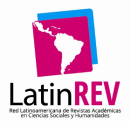Open access as an instrument for the transformation of academic evaluation
DOI:
https://doi.org/10.54871/cl4c317aKeywords:
BOAI, open access, academic evaluation, scientometric indicators, Latin AmericaAbstract
The Budapest Open Access Initiative (BOAI) in its 20th anniversary published a new set of recommendations based on its original principles, linked to incentivizing open publication and removing disincentives generated or created around it. In Latin America, it is necessary to conceptually rethink and redifine the scope of open access based on the historical tradition of the region and academic evaluation processes. The region requires the expansion and intervention of open access in the entire research process, in order to consolidate the bound between open access and open science as a dynamic and comprehensive process; as well as to reform the evaluation systems and cultures prevailing in the region considering open access.
Downloads
References
Aguado-López, Eduardo y Vargas Arbeláez, Esther J. (2016). Reapropiación del conocimiento y descolonización: el acceso abierto como proceso de acción política del sur. Revista Colombiana de Sociología, 39 (2), 69-88. https://doi.org/10.15446/rcs.v39n2.58966
Beigel, Fernanda (2014). Publishing from the periphery: Structural heterogeneity and segmented circuits. The evaluation of scientific publications for tenure in Argentina’s CONICET. Current Sociology, 62 (5), 743–765. https://doi.org/10.1177/0011392114533977
Biagioli, Mario y Lippman, Alexandra (2020). Gaming the metrics. Misconduct and manipulation in academic research. Cambridge/London: The MIT Press.
CONACyT (2022). Reglamento del Sistema Nacional de Investigadores. https://conacyt.mx/wp-content/uploads/sni/marco_legal/Reglamento_Sistema_Nacional_de_Investigadores_10_agosto_2022.pdf
Secretaria de Gobernación (2019). Constitución Política de los Estados Unidos Mexicanos. http://www.diputados.gob.mx/LeyesBiblio/ref/dof/CPEUM_ref_237_15may19.pdf
DORA (2018). Declaración de San Francisco sobre la evaluación de la investigación. Revista ORL, 9 (4), 295–299.
Gabardo, Emerson; Wunder Hachem, Daniel y Hamada, Guilherme (2018). Sistema Qualis: análise crítica da política de avaliação de periódicos científicos no Brasil. Revista Do Direito, 1(54), 144-185. https://doi.org/10.17058/rdunisc.v1i54.12000
Guédon, Jean-Claude (2008). Open Access and the divide between “mainstream” and “peripheral” science. https://core.ac.uk/download/pdf/290477545.pdf
Hicks, Diana, et al. (2015). The Leiden Manifesto for research metrics. Nature, 520 (7548), 9-11. https://doi.org/10.1038/520429a
Larivière, Vincent; Haustein, Stephanie y Mongeon, Philippe (2015). The oligopoly of academic publishers in the digital era. PLoS ONE, 10 (6). https://doi.org/10.1371/journal.pone.0127502
Lucio-arias, Diana; Velez Cuartas, Gabriel, y Leydesdorff, Loet (2015). SciELO Citation Index and Web of Science: Distinctions in the Visibility of Regional Science. Conferencia Proceedings of ISSI 2015. Estambul. 1152-1160.
Priem, Jason; Piwowar, Heather y Hemminger, Bradley H. (2011). Altmetrics in the wild: An exploratory study of impact metrics based on social media. Metrics 2011: Symposium on Informetric and Scientometric Research. Nueva Orleans. 1-18.
Ràfols, Ismael (2019). S&T indicators in the wild: Contextualization and participation for responsible metrics. Research Evaluation, 28 (1), 7-22. https://doi.org/10.1093/RESEVAL/RVY030
Salatino, Maximiliano (2021). Entre Ciudad de México y San Pablo. Itinerarios históricos del espacio latinoamericano de revistas científicas. Pilquen. Sección Ciencias Sociales, 24 (4), 1-15.
Salatino, Maximiliano y Banzato, Guillermo (2021). Confines históricos del acceso abierto latinoamericano. En Arianna Becerril y Saray Córdoba (Eds.), Conocimiento abierto en América Latina: Trayectoria y desafíos (pp. 79-115). México/Buenos Aires: CLACSO-UAEM.
Sugimoto, Cassidy R. et al. (2019). Rethinking Impact Factors: new pathways in journal metrics. F1000Research.
Piñeres Sus, Juan David; Velez Cuartas, Gabriel y Montes Sepúlveda, Gabriela (2017). Lucha por el reconocimiento en los modelos de medición: el caso de la universidad de Antioquia. Andamios, 14 (34), 259-281.
Vélez Cuartas, Gabriel, et al. (2019). Hacia un modelo de medición de la ciencia desde el Sur Global: métricas responsables. Palabra Clave, 8 (2), e068. https://doi.org/10.24215/18539912e068
Vessuri, Hebe, Guédon, Jean-Claude y Cetto, Ana María (2014). Excellence or quality? Impact of the current competition regime on science and scientific publishing in Latin America and its implications for development. Current Sociology, 62, 647-665.
Downloads
Published
How to Cite
Issue
Section
License
Copyright (c) 2022 Maximiliano Salatino, Alejandro Macedo

This work is licensed under a Creative Commons Attribution-NonCommercial-ShareAlike 4.0 International License.








